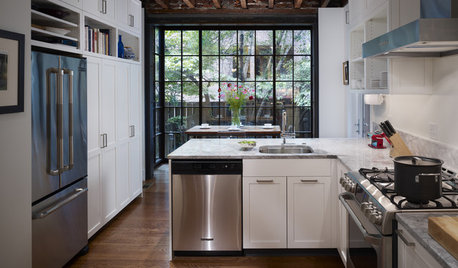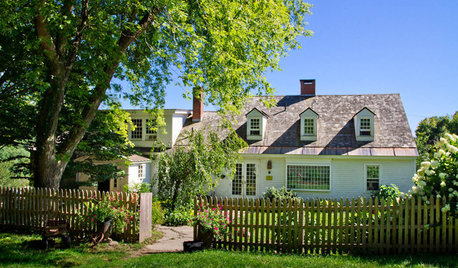Is Miracle-Gro a good idea?
greglong5309
8 years ago
Related Stories

SMALL HOMESTiny Houzz Tour: Living the Good Life Their Way
This owner-built home in Australia may be on the small side, but it provides the perfect space for the family’s big dreams to come true
Full Story
MOST POPULAR5 Remodels That Make Good Resale Value Sense — and 5 That Don’t
Find out which projects offer the best return on your investment dollars
Full Story
ECLECTIC HOMESHouzz Tour: Playing With Good Tension in Austin
A 1938 bungalow gets updates — including a whole new floor — but keeps much of its traditional charm
Full Story
COLORNature’s Color Wisdom: Lessons on White From the Great Outdoors
Blizzard fierce or butter soft, white can highlight shapes, unify a room and perform miracles on the cheap
Full Story
FEEL-GOOD HOME12 Very Useful Things I've Learned From Designers
These simple ideas can make life at home more efficient and enjoyable
Full Story
MOST POPULARMeet a Lawn Alternative That Works Wonders
Carex can replace turfgrass in any spot, is low maintenance and adjusts easily. Add its good looks and you’ve got a ground cover winner
Full Story
LIFECreate a 'Forever House' Connection
Making beautiful memories and embracing your space can help you feel happy in your home — even if you know you'll move one day
Full Story
FEEL-GOOD HOME10 Tips for a More Peaceful Home
Turn your everyday living space into a serene retreat by clearing visual distractions, softening your lighting and more
Full Story
LIFESlow Living 101: Tips for Turning Off the Chaos
It may feel as though you're too busy to slow down and enjoy life. But even little changes can have a big effect
Full Story
FEEL-GOOD HOME8 Tips for Harmony in the Kitchen
Frustrated by the arguments that arise over kitchen duties? Check out these coping strategies
Full Story


digdirt2
rhizo_1 (North AL) zone 7
Related Discussions
Miracle-Gro Garden Feeder
Q
A ''miracle'' from a Scotts Miracle-Gro accident.
Q
Worm castings mixed in MiracleGro soil?
Q
Miracle Gro - good for everything??
Q
daninthedirt (USDA 9a, HZ9, CentTX, Sunset z30, Cfa)
greglong5309Original Author
rhizo_1 (North AL) zone 7
digdirt2
greglong5309Original Author
digdirt2
daninthedirt (USDA 9a, HZ9, CentTX, Sunset z30, Cfa)
Peter (6b SE NY)
digdirt2
Peter (6b SE NY)
balloonflower
daninthedirt (USDA 9a, HZ9, CentTX, Sunset z30, Cfa)
digdirt2
daninthedirt (USDA 9a, HZ9, CentTX, Sunset z30, Cfa)
digdirt2
rgreen48
rhizo_1 (North AL) zone 7
daninthedirt (USDA 9a, HZ9, CentTX, Sunset z30, Cfa)
rgreen48